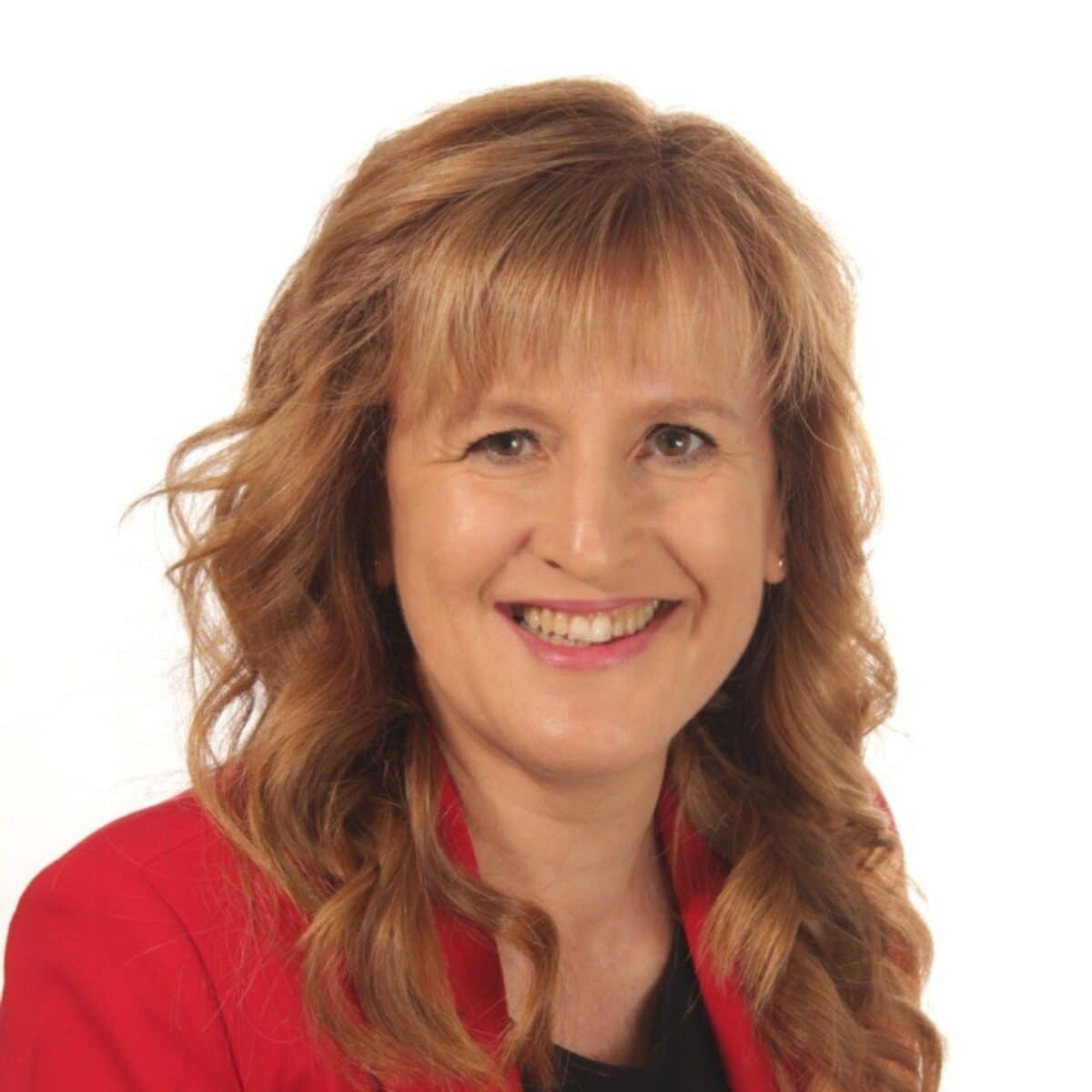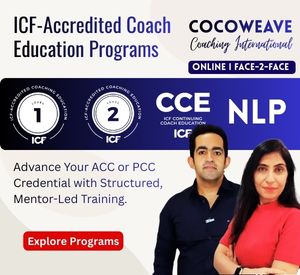“La dolce vita” in Italian means living a good, fulfilling life. It means enjoying life with presence, zest, and grace.
At its heart, this is why many of us became coaches. And yet, in supervision sessions, we so often hear a familiar refrain: “I love coaching, and I adore my clients … but everything around running my business is draining my energy.”
While this is one of the most frequent dilemmas brought into supervision, it echoes in nearly every space where coaches gather. The question follows: “How can I just do coaching and let go of the business development part?”
In search of relief, many coaches turn to platforms where they can focus solely on the “sweet” part of the profession: the coaching sessions themselves.
But is that really la dolce vita?
Bringing Coaching Skills into Business Development
This is where there’s an opportunity to ask deeper, more effective questions:
- “How can I bring all of my coaching skills into business development so that I enjoy it as much as the coaching part?”
- “How can I use my coaching skills to encourage even more people to gain coaching support, so that I have a greater impact in the world?”
Business development often feels like a separate world — one requiring a different skill set than coaching. It can feel like an “either/or” proposition: either you’re focused on coaching or on running a business. But as coaches, we know that there is always a both/and. Let’s look at how that can work at the intersection of supervision and business development.
3 Pillars of Supervision as a Business Foundation
Supervision offers more than a reflective process; it’s the framework that allows coaches to thrive instead of simply surviving. Built on three foundational pillars (normative, formative, and restorative), each pillar plays a crucial role in enhancing both the coaching practice and the coaching business, while supporting the coach’s well-being.
The Restorative Pillar
In the restorative space, coaches can focus on their own well-being. Here, frustrations are named, emotional loads processed, and resilience restored. This pillar directly supports ICF Core Competencies #5 Maintains Presence and #6 Listens Actively by helping coaches show up with confidence and energy.
However, well-being alone isn’t enough. When coaches bring active, deep listening into conversations with potential clients, they naturally support those individuals in recognizing their need for coaching. By bringing coaching skills into every aspect of business development, the energy can shift from bitter to sweet, making the client acquisition process much more enjoyable and energizing for both coach and potential client.
The Formative Pillar
The formative space of supervision supports growth and aligns with ICF Competencies, like #2 Embodies a Coaching Mindset and #4 Cultivates Trust and Safety. As lifelong learners, coaches are tempted to add more certifications or tools to support growth. Yet it’s in refining what’s already present within the coach and learning how to apply it with deeper awareness and mastery that we find true inner trust and safety.
Here’s where a common pattern emerges: many coaches tend to overload rather than simplify. They keep adding, stacking, and collecting information without pausing to reflect. In doing so, they forget one of the most foundational principles of coaching, the Rule of One: one client, one goal, one step at a time.
This principle doesn’t just apply to client work; it applies equally to business development. To grow our businesses, we use the Power of One process in marketing to create clarity: one ideal client, one urgent challenge, one desired result, one core offer. This simplification makes marketing and sales easier and less time-consuming, ultimately creating more time in client sessions.
The Normative Pillar
The normative space in supervision illuminates the path forward, aligning with ICF Competencies such as #1 Demonstrates Ethical Practice and #2 Establishes and Maintains Agreements. This is where coaches take a step back and ask essential questions, such as:
- What matters most right now?
- What are the key priorities that align with your purpose?
- How do your current practices support your agreements with clients, stakeholders, and yourself?
Through reflective practice, supervision helps coaches zoom out and examine their business from multiple perspectives. This critical reflection allows them to see themselves as part of interconnected systems and nurture the creation of a trackable business development plan based on their coaching practice goals and business objectives.
The Power of Reflective Questions
Effective supervision begins with honest assessment through power questions. Start by asking yourself:
- What’s actually happening in my business?
- Where am I over-giving or undercharging?
- What’s missing that would bring more abundance?
- What is my next stage of growth for my coaching skills? For my business?
These questions create a foundation for growth in both the coach’s development and business success.
Living La Dolce Vita in Your Coaching Business
So, what does la dolce vita, the sweet life, have to do with coaching and business? It has everything to do with it.
Too often, coaches find themselves stuck in the “bitter” part of business: the pressure to post, the fear of being salesy, the overwhelm of doing it all. It can feel heavy, transactional, and disconnected from the deep purpose that drew them to coaching in the first place.
But supervision offers a shift. It creates space for reflection, clarity, and restoration, turning bitterness into sweetness.
The “sweet” life is about approaching business in a new way. When we bring our full coaching presence to business development, it becomes a continuation of our values, instead of a departure from them. Each email, each conversation, and each offer becomes an act of service.
And we don’t have to get there all at once. As we shared earlier, the Rule of One invites us to take one intentional step at a time. That’s how bitterness shifts: through small, steady movements toward simplicity and clarity. This principle makes business development as meaningful as coaching sessions.
La dolce vita isn’t just a dream. With supervision as your foundation, you can build a coaching business that supports your growth and restores your energy, one sweet, intentional step at a time.
Rossella Pin, MCC, and Karen Cappello, MCC, will explore this topic in more depth at ICF Converge 2025, taking place October 23 to 25 in San Diego, California, USA. Join their 45-minute presentation “La Dolce Vita: Sustainable Business Growth Through Coaching Supervision” in the Business Development theme. By attending this session, you can earn 0.25 Continuing Coach Education (CCE) units in Core Competency and 0.50 in Resource Development.
Disclaimer
The views and opinions expressed in guest posts featured on this blog are those of the author and do not necessarily reflect the opinions and views of the International Coach Federation (ICF). The publication of a guest post on the ICF Blog does not equate to an ICF endorsement or guarantee of the products or services provided by the author.
Additionally, for the purpose of full disclosure and as a disclaimer of liability, this content was possibly generated using the assistance of an AI program. Its contents, either in whole or in part, have been reviewed and revised by a human. Nevertheless, the reader/user is responsible for verifying the information presented and should not rely upon this article or post as providing any specific professional advice or counsel. Its contents are provided “as is,” and ICF makes no representations or warranties as to its accuracy or completeness and to the fullest extent permitted by applicable law specifically disclaims any and all liability for any damages or injuries resulting from use of or reliance thereupon.
Authors
Post Type
Blog
Audience Type
Coach Educators, Experienced Coaches, External Coaches, New Coaches, Professional Coaches
Topic
Building a Successful Coaching Business, Business Development, ICF Events
Related Posts
How to Master AI and Authenticity in Coaching
How do you stay relevant when AI can now draft client assessments…
How to Use LinkedIn to Establish Thought Leadership
LinkedIn offers coaches a powerful opportunity to attract new clients, establish thought leadership, and grow…
Personal Branding for Coaching — Amplified by AI
How can you stand out as a coach in a crowded market…








